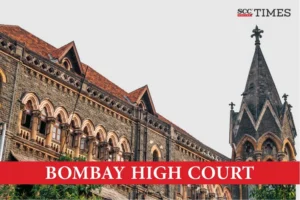Bombay High Court: In a writ petition filed by the Indian Express (petitioner), against the order of the Industrial Court, Thane (“Industrial Court”), that stayed the transfer of the respondent, the single-Judge Bench of Sandeep V. Marne, J.*, held that the transfer order was not found tainted with mala fides, or personal bias, or in contravention with law. Therefore, the Court set aside the order of the Industrial Court as the respondent’s pleadings did not specify allegations of personal bias or vengeance pleaded in the complaint and the pleadings relating to mala fides were absent.
Background
The petitioner is a newspaper printing and publishing business with multiple printing presses across the country. The respondent joined the petitioner business as a Trainee Semi-Skilled Baller in 2002, and by 2019, he was promoted to Senior Printer, posted at Navi Mumbai.
In the light of the Union elections of August 2022, the respondent and other employees had apprehended adverse action of termination and transfer against them and filed a complaint before the Industrial Court, Thane seeking stay on the proposed termination/transfer. The Industrial Court passed an interim order, restraining the petitioner from terminating the services of the complainants without following due process of law and from implementing transfer orders for seven days. This was challenged in a separate writ petition before the instant Court.
In November 2022, the respondent was ordered to deputation at Lucknow by the petitioner, against which the respondent again filed another complaint before the Industrial Court, which granted interim stay on the deputation order. The petitioner contested the stay before the High Court, however submitting that the respondent shall return from Lucknow to Navi Mumbai in six months, and in that writ petition, the High Court set aside the stay on deputation. In six months, the respondent returned to Navi Mumbai.
In April 2024, the respondent was promoted to Supervisor by the petitioner, and ordered their transfer to Aurangabad in exigencies of the petitioner company’s work. The respondent again filed a complaint before the Industrial Court, challenging the promotion/transfer order, and the Industrial Court temporarily restrained the petitioner from effecting their orders. Aggrieved of this order of this impugned order, the petitioner filed the instant petition.
Court’s analysis and decision
The Court found that the contract of employment of the respondent with the petitioner provided for transfer liability throughout India in exigencies of service, and the same had not been disputed by either party. Therefore, the Court noted that the impugned order of transfer was not in contravention of employment terms.
The petitioner contended that the retirement of one of the employees, and the impending retirement of another at Aurangabad had created a requirement for a Senior Printer/Supervisor at Aurangabad.
Therefore, the Court pointed out that there was prima facie existence of exigency for transfer of respondent on promotion as Supervisor at Aurangabad. The Court opined that the only ground to oppose such exigency of service would be to demonstrate that despite the exigency, a particular employee was selected for hostile discrimination on account of existence of a personal bias or mala fide.
The Court referred to several cases to discuss the law relating to mala fides in employment transfers.
-
E.P. Royappa v. State of Tamil Nadu, (1974) 4 SCC 3, wherein the Supreme Court held that the burden of establishing mala fides is very heavy on the person alleging it, as such allegations are more easily made than proven as they demand proof of a higher order of credibility.
-
Rajendra Roy v. Union of India, (1993) 1 SCC 148, wherein the Supreme Court held that, unless an order of transfer is passed mala fide or in violation of the rules of service and guidelines for transfer, without any proper justification, the Court and the Tribunal should not interfere with such order. In a transferrable post, an order of transfer is a normal consequence, and personal difficulties are matters for consideration of the employer. It is possible to draw reasonable inference of mala fide action from the pleadings and antecedent facts and circumstances, however it cannot be drawn from insinuation and vague suggestions
-
Rajneesh Khajuria v. Wockhardt Ltd., (2020) 3 SCC 86, wherein the Supreme Court held that the act of transfer can be unfair labour practice if the transfer is actuated by mala fide. The plea of mala fide includes two questions, namely- whether there was a personal bias or oblique motive, and whether the administrative action was contrary to the objects, requirements and conditions of a valid exercise of administrative power.
The Court in the instant case noted that there was no specific allegations of personal bias or vengeance pleaded in the complaint andpleadings relating to mala fides were absent, and therefore, the Industrial Court should not have interfered with the impugned transfer order by granting a stay on it.
The Court opined that the Industrial Court’s finding that the petitioner had issued transfer/promotion order as per their convenience was totally erroneous and unsustainable.
Therefore, the Court held that the impugned order passed by the Industrial Court was indefensible, and hence set it aside.
[The Indian Express (P) Ltd. v. Ganesh Gopinath Rane, 2024 SCC OnLine Bom 2040, decided on 02-07-2024]
*Judgment authored by: Justice Sandeep V. Marne
Advocates who appeared in this case :
For the Petitioner: Dr. Abhinav Chandrachud, Amol Joshi, Pranit Kulkarni, Tejasvi Ghag, Poorvi Kamani, Advocates
For the Respondent: Jane Cox, Ghanshyam R. Thombare, Advocates

